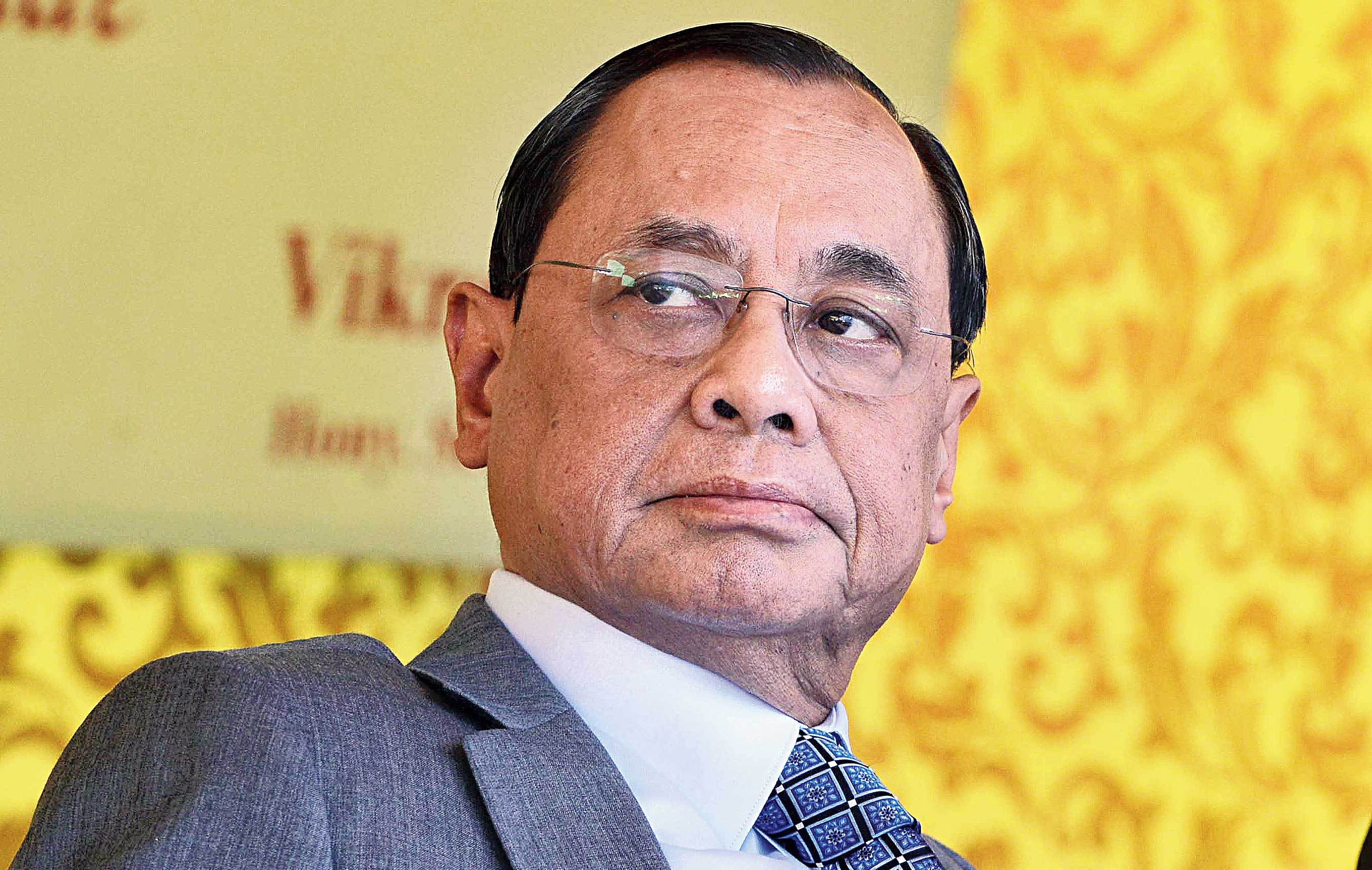The Supreme Court on Thursday dismissed a batch of petitions seeking a review of its judgment of last year through which it had refused to intervene in the Rafale deal or order a court-monitored probe.
The bench of Chief Justice Ranjan Gogoi and Justices Sanjay Kishan Kaul and K.M. Joseph said it had found no merit in the review pleas as the issues they had raised had already been dealt with in the December 14, 2018, judgment.
The petitioners, who included former Union ministers Yashwant Sinha and Arun Shourie and advocate Prashant Bhushan, had sought the registration of an FIR by the CBI and a probe into the deal to buy 36 fighter jets from France.
They had cited a price escalation and contended that government officials had misled the court by suppressing material related to the PMO’s “parallel negotiations” with Rafale maker Dassault Aviation that the defence ministry had objected to.
The court disagreed with the petitioners’ contention that “the contract has been reviewed prematurely by the judiciary without the benefit of investigation and inquiry into the disputed questions of facts”.
“We do not consider this a fair submission for the reason that all counsels, including counsel representing the petitioners in this matter, addressed elaborate submissions on all the aforesaid three aspects,” the main judgment, authored by Justice Kaul, said.
The court had scrutinised the matter under the three heads of “decision-making process”, “pricing” and “offsets”.
“No doubt that there was a prayer made for registration of FIR and further investigation but then once we had examined the three aspects on merits we did not consider it appropriate to issue any directions,” the judgment said.
On the cost of each aircraft rising from Rs 580 crore to over Rs 1,500 crore, the bench said the subject of pricing did not fall within the judiciary’s domain.
“Insofar as the aspect of pricing is concerned, the court satisfied itself with the material made available. It is not the function of this court to determine the prices nor for that matter can such aspects be dealt with on mere suspicion of persons who decide to approach the court,” the judgment said.
“The internal mechanism of such pricing would take care of the situation. On the perusal of documents we had found that one cannot compare apples and oranges. Thus, the pricing of the basic aircraft had to be compared which was competitively marginally lower. As to what should be loaded on the aircraft or not and what further pricing should be added has to be left to the best judgment of the competent authorities.”
The court declined to go into the petitioners’ submission that certain file notings within the government showed that some defence officials had objected to the “parallel negotiations” by the PMO with the French government.
“We have noted aforesaid that a plea was also raised about the ‘non-existent CAG report’ but then at the cost of repetition we state that this formed part of the order for correction we have passed aforesaid,” it said.
The December 14 order had said the Rafale pricing details had been shared with the Comptroller and Auditor General, whose report had been examined by the Public Accounts Committee of Parliament.
When it emerged that no CAG report had been submitted, or seen by the PAC, the government suggested a mix-up of tenses “perhaps on account of misinterpretation of a couple of sentences in a note handed over to this hon’ble court in a sealed cover”.
It said it had indeed shared the pricing details with the CAG but what should have been read as “is” in a subsequent part was interpreted as “has been” and “was”, leading to the incorrect impression that the CAG had submitted its report and the PAC examined it.
“Insofar as the decision-making process is concerned, on the basis of certain documents obtained, the petitioners sought to contend that there was contradictory material. We, however, found that there were undoubtedly opinions expressed in the course of the decision-making process, which may be different from the decision taken, but then any decision-making process envisages debates and expert opinion and the final call is with the competent authority, which so exercised it,” the court said.










